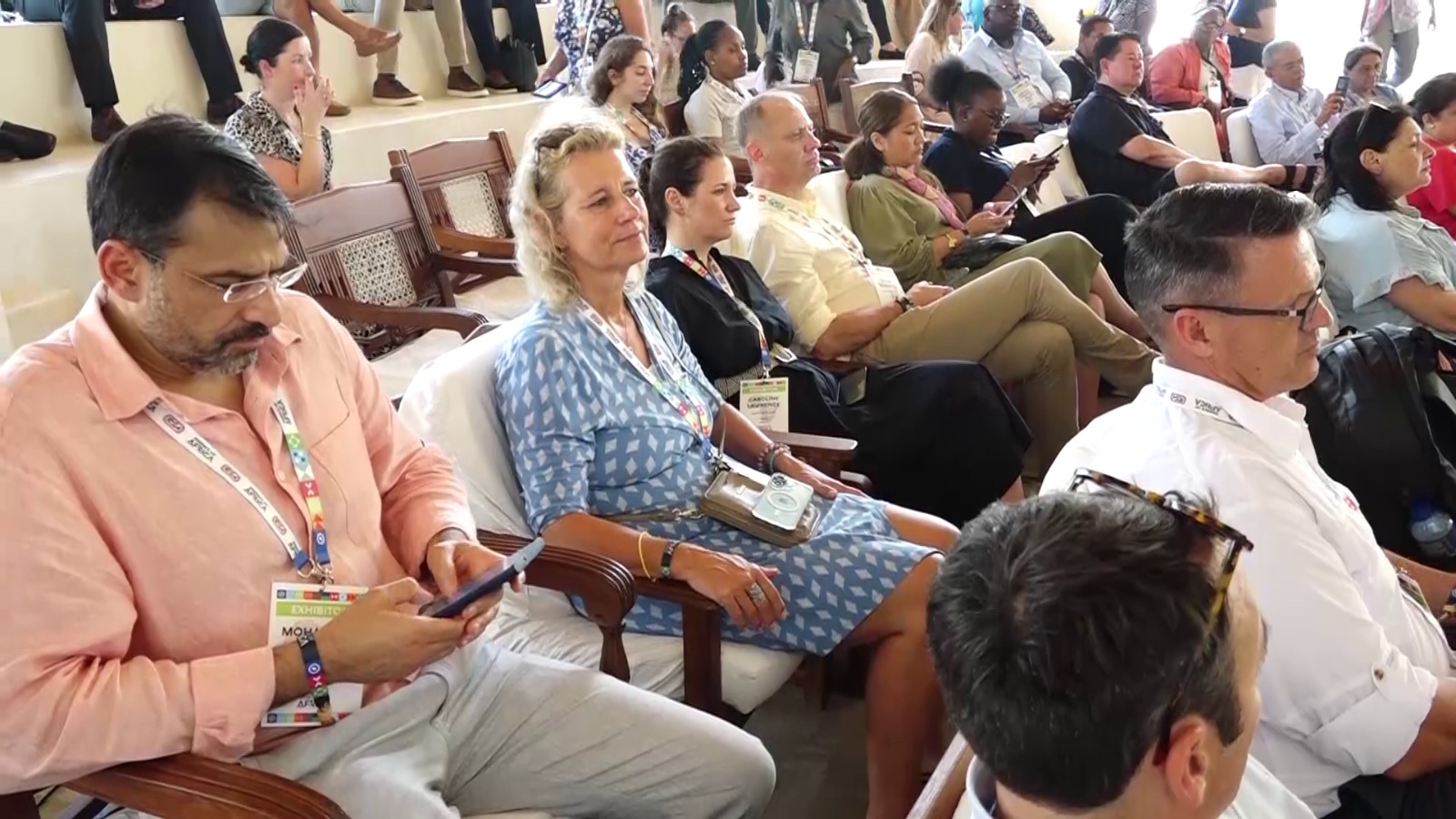 Kenyan tourism players led by Coast tourism Mogul Mohamed Hersi and Ocean Beach Resort and Spa General Manager Maureen Awuor in a one on one interaction with International tourism agents during the Essence of Africa 2025 conference going on at the Diamonds hotels in Malindi town, Kilifi County on Tuesday, October, 8, 2025. More than 500 international tour operators and agents are attending the three day conference. Photo by Ben Okweingoti.
Kenyan tourism players led by Coast tourism Mogul Mohamed Hersi and Ocean Beach Resort and Spa General Manager Maureen Awuor in a one on one interaction with International tourism agents during the Essence of Africa 2025 conference going on at the Diamonds hotels in Malindi town, Kilifi County on Tuesday, October, 8, 2025. More than 500 international tour operators and agents are attending the three day conference. Photo by Ben Okweingoti.
By Ben Okweingoti
Tourism stakeholders from across Africa have been urged to embrace emerging travel trends and tailor their offerings to meet the demands of modern-day global tourists.
This call was made during the second day of the Essence of Africa 2025 conference in Malindi, Kilifi County. The high-profile event brought together over 500 tour operators and travel agents from 39 countries. It was sponsored by the Ministry of Tourism and the Kilifi County Government in collaboration with key tourism stakeholders.
Speakers at the conference emphasized the need to package tourism products based on the preferences of different age groups and source markets. They noted that younger travelers, particularly Generation Z, are redefining global tourism patterns.
“Gen Z travelers tend to travel for longer periods and work remotely. They seek immersive experiences rather than luxury resorts,” said Paula Newton of Rethink Travel Marketing in Los Angeles. “They make travel decisions within months, not years, and share their experiences widely on platforms like Instagram and WhatsApp. That’s free marketing for Africa.”
Newton challenged African suppliers to tailor experiences for younger visitors who prioritize authenticity and cultural connection.
The conference also spotlighted the fast-growing Chinese market, with experts urging African tour operators to leverage China’s dominant social media platform, WeChat.
“If you’re not on WeChat, you’re not talking to China,” said Lin Yu of Travel World China. She explained that all content for the Chinese market must be localized, translated, and visually appealing. “Post-pandemic Chinese travelers are more sophisticated, seeking meaningful experiences over sightseeing. They’re also spending more on luxury family packages.”
Yu further noted that Artificial Intelligence (AI) is becoming central to travel marketing, calling on stakeholders to invest in consistent, data-driven content management.
From Latin America, Andrea Landaeta of Sariri Terra Brazil described the region as an untapped market for African destinations. “Africa has moved to the top of Brazilian travel wish lists,” she said. “Brazilians and Mexicans are exploring beyond South Africa—discovering Botswana, Mozambique, and Uganda—and seeking high-end, purposeful travel experiences.”
Jacqui Reynolds, co-founder of Essence of Africa, said the continent’s tourism industry must embrace sustainability, eco-tourism, and responsible tourism to meet changing international expectations.
“When we market Africa, we must highlight sustainability,” she emphasized. “Research shows that more than 70 percent of international travelers now demand sustainable tourism options.”
Kgomotso Ramothe, CEO of Memberships at the African Travel and Tourism Association (ATTA), underscored the need for African governments to nurture talent and support platforms that showcase the continent’s diversity.
“The beauty of Africa is not just in its landscapes but in the people and stories. Travelers want to connect with that,” she said.
Locally, Kate Mwikali, chairperson of the Progress Welfare Association of Malindi (PWAM), estimated that the event would inject at least Sh55 million into the Malindi economy.
“With over 500 participants spending an average of Sh110,000 each, not counting the multiplier effect on local traders, transport, and cultural tourism, the impact will be significant,” she said.
The Essence of Africa conference aims to position the continent as a competitive and sustainable global tourism destination by aligning African products with evolving international travel trends.